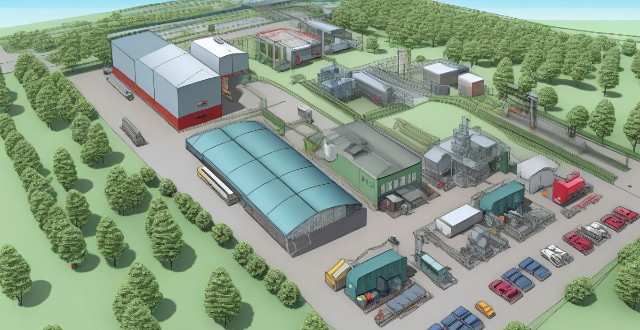The article discusses the drawbacks of using hydrogen as an energy carrier, including production, storage and transportation, safety concerns, and high costs. It notes that most hydrogen is currently produced from fossil fuels, which results in significant greenhouse gas emissions, and that electrolysis requires a large amount of electricity often generated from fossil fuels. It also mentions that hydrogen gas is highly flammable and requires specialized equipment for safe storage and transportation, and that it has a low energy density compared to other fuels. The article further notes that hydrogen gas is highly flammable and can ignite easily if it comes into contact with an open flame or spark, and that leaks can be difficult to detect due to its low density and lack of smell. Finally, it states that the infrastructure required for hydrogen production, storage, and transportation is expensive to build and maintain, and that the cost of producing hydrogen through electrolysis is currently higher than traditional fossil fuels.

Are there any drawbacks to using hydrogen as an energy carrier?
Hydrogen has been proposed as a potential energy carrier due to its high energy density and zero emissions. However, there are several drawbacks associated with using hydrogen as an energy carrier. In this article, we will discuss the main drawbacks of using hydrogen as an energy carrier.
1. Production of Hydrogen
The production of hydrogen is one of the major drawbacks of using it as an energy carrier. Currently, most of the hydrogen produced is derived from fossil fuels, which results in significant greenhouse gas emissions. While electrolysis can be used to produce hydrogen from water, it requires a large amount of electricity, which is often generated from fossil fuels. This means that the overall carbon footprint of hydrogen production can be quite high.
2. Storage and Transportation
Another drawback of using hydrogen as an energy carrier is its storage and transportation. Hydrogen gas is highly flammable and requires specialized equipment for safe storage and transportation. Additionally, hydrogen has a low energy density compared to other fuels, which means that it requires larger storage tanks or more frequent refueling. This can make the infrastructure required for hydrogen storage and transportation more expensive than traditional fuels.
3. Safety Concerns
Safety concerns are also a major drawback of using hydrogen as an energy carrier. Hydrogen gas is highly flammable and can ignite easily if it comes into contact with an open flame or spark. This means that special precautions must be taken when handling and storing hydrogen to prevent accidents. Additionally, leaks can be difficult to detect due to hydrogen's low density and lack of smell, which can increase the risk of explosions.
4. High Costs
Finally, the high costs associated with producing, storing, and transporting hydrogen are another drawback of using it as an energy carrier. The infrastructure required for hydrogen production, storage, and transportation is expensive to build and maintain. Additionally, the cost of producing hydrogen through electrolysis is currently higher than traditional fossil fuels, which makes it less competitive in terms of price.
In conclusion, while hydrogen has the potential to be a clean and efficient energy carrier, there are several drawbacks associated with its use. These include the environmental impact of hydrogen production, challenges related to storage and transportation, safety concerns, and high costs. Addressing these issues will be crucial for the successful adoption of hydrogen as an energy carrier in the future.